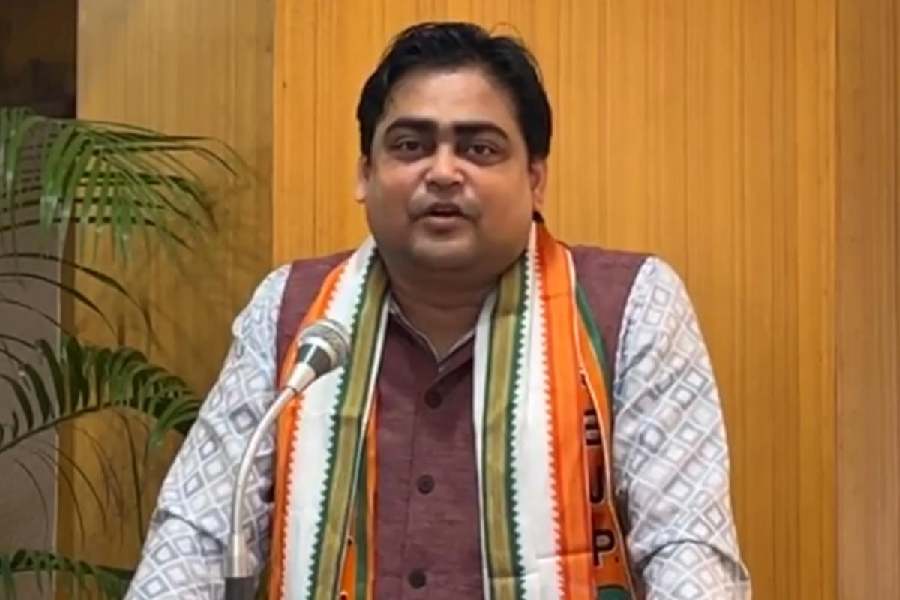A large section of people in Matua strongholds of North 24-Paraganas fear losing voting rights as 51 per cent voters in the existing electoral rolls could not be linked with the 2002 post-SIR rolls during the mapping of the two over the past one month or so.
It means these 51 per cent voters fall in the Red Zone, a classification that applies to voters whose identities could not be matched with the 2002 voter list, which the Election Commission has set as a benchmark for verification.
The findings are disturbing for the Matua community — a marginalised Hindu sect, primarily composed of Bengali-speaking Hindus who crossed over to Bengal from Bangladesh over decades — as many of them don’t have any of the 11 documents mentioned by the EC required to retain their names in the electoral rolls.
“If any of the Matuas don’t have links with the 2002 electoral rolls, s/he would face trouble retaining their names in the electoral rolls since they usually don’t have the 11 documents mentioned by the poll panel. Only one paper — Indian citizenship under the Citizenship Amendment Act (CAA),” said a Matua leader aware of the developments.
A senior state government official said that this meant that only 49 per cent voters in Matua-dominated areas matched with the 2002 roll. In North 24-Parganas, 45 per cent voters could be linked to the 2002 rolls and 55 per cent fell into the Red Zone.
In Gaighata alone, out of 1,56,392 voters, around 82,328 individuals across 158 polling stations — including the Matua heartland of Thakurnagar — could not be matched with the 2002 post-SIR electoral rolls.
Sources among the Matuas said that most of these voters belonged to their community and other Hindu refugee families who migrated from Bangladesh during the late 1980s.
Sources indicated that the issue extends beyond Gaighata, affecting other Matua-dominated constituencies such as Bagda, Bongaon South and other segments where families who migrated from Bangladesh were rehabilitated during the past few decades.
Large numbers of voters in these areas also falling into the “Red Zone,” sparking widespread panic among such Hindu migrants from Bangladesh.
Prasenjit Biswas, a lawyer and general secretary of the pro-Trinamool faction of the India Matua Mahasangha, said: “These Red Zone voters mostly migrated from Bangladesh and got their names enrolled in the voter list. They took government benefits as voters, they settled here, built houses, and some even secured government jobs. Later, they brought over their parents and family members
from Bangladesh.”
He added: “The problem is that their parents’ names are not in the 2002 voters’ list. Now, to get their names re-enrolled, they must produce one of 11 documents issued by government agencies before July 1, 1987, proving residence in India. But most do not possess such documents, and without them, their names will be struck off the rolls.”
With the absence of valid documents likely to cost them their right to vote, questions are also being raised about their citizenship status.
“In such a situation, the only option left for them is to apply for citizenship under the CAA, but that requires submission of several documents,” Biswas said.
He also pointed out that government employees among those affected were especially anxious.
“Many people are panicking over the possibility of losing their jobs or even facing deportation if they are dropped from the voter list. The SIR could end up stripping them of their right to stay in India,” Biswas warned.
Sensing the growing anxiety, the BJP — which draws substantial support from the Matua community — has moved swiftly to contain the fallout.
The party has begun organising camps across border districts to reassure Hindu refugees that they can apply for Indian citizenship under the CAA if their names are omitted during the revision process. Party leaders have been instructed to hold at least 700 such camps statewide.
Bongaon MP and Union minister of state for shipping, Shantanu Thakur, who is also a key leader of the Matua community, has urged community members to remain calm. Addressing a large gathering at Thakurnagar on October 26, Thakur said: “Even if anyone’s name is dropped during the SIR process, I shall help you to obtain the voter card again through the Citizenship Amendment Act. Don’t be panicked at all.”
Leaders of the pro-BJP faction of the All India Matua Mahasangha have also acknowledged the prevailing fears but are urging the community to view the situation as an opportunity.
“We understand that for obvious reasons many Matuas and Hindu voters will fall into the Red Zone and may lose their names from the voters’ list. But this could ultimately help them attain citizenship through the CAA,” said Mahitosh Baidya, a senior functionary of the Mahasangha.
“If the SIR robs them of their voting rights, the CAA will help them regain it. We have appealed to people to apply for citizenship through the CAA portal as early as possible. Only a few thousand have done so so far, mainly due to misleading campaigns by Trinamool. But people are now realising the importance of the CAA, and the crowded camps are proving this truth,” Baidya added.
However, BJP insiders admit that while the strategy might help consolidate support among the Matua population, obtaining citizenship certificates and regaining voter status may not be completed before the next Bengal Assembly election. If so, the delay could prove politically costly for the Bengal BJP.










